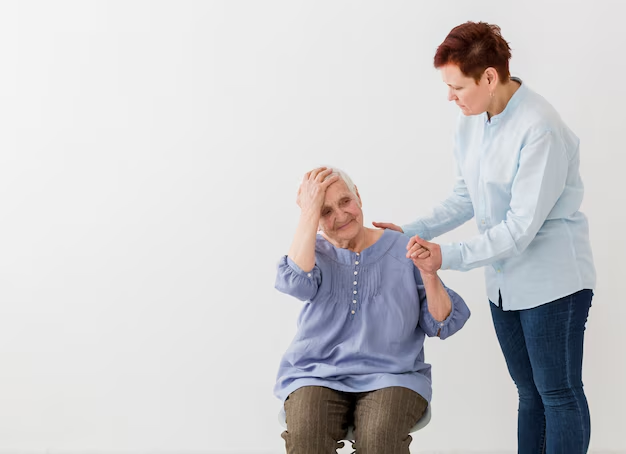Your Guide to How Do People Get Parkinson's
What You Get:
Free Guide
Free, helpful information about Parkinsons FAQ and related How Do People Get Parkinson's topics.
Helpful Information
Get clear and easy-to-understand details about How Do People Get Parkinson's topics and resources.
Personalized Offers
Answer a few optional questions to receive offers or information related to Parkinsons FAQ. The survey is optional and not required to access your free guide.
Understanding Parkinson’s Disease: Causes and Supportive Resources
Parkinson’s disease is a complex neurological disorder affecting movement and coordination, experienced by millions worldwide. Despite extensive research, the precise cause of Parkinson’s is not fully understood. However, scientists have identified a combination of genetic factors and environmental influences as potential contributors to the development of this disease.
What Causes Parkinson’s Disease?
Genetic Factors
Although Parkinson’s disease is not strictly hereditary, certain genetic mutations are associated with a higher risk of developing the condition. Approximately 10-15% of Parkinson’s cases are linked to these genetic factors. Specific genes, such as LRRK2, PARK7, and SNCA, have been highlighted in studies that explore hereditary connections. If you have a family history of Parkinson’s, genetic counseling might be a prudent step to assess your personal risk.
Environmental Influences
The environment also plays a role in the onset of Parkinson’s. Prolonged exposure to certain chemicals, such as pesticides and herbicides, is suspected to increase the risk. Additionally, living in rural areas, possibly due to the prevalence of agricultural chemicals, has been noted as a potential risk factor. Head injuries and exposure to heavy metals are other aspects that could potentially influence the likelihood of developing Parkinson’s.
Age and Other Risk Factors
Age is the most significant risk factor for Parkinson’s, with the majority of diagnoses occurring after age 60. Men are also statistically more likely to develop the condition than women. Smoking, surprisingly, may lower risk, though this is not an advisable prevention strategy due to the numerous health risks associated with tobacco use.
Navigating Life with Parkinson’s: Financial and Educational Resources
Living with Parkinson’s can be emotionally and financially challenging. To ease some of these burdens, various programs and resources are available:
Government Aid Programs
There are government programs designed to provide financial assistance to those diagnosed with Parkinson's, such as Social Security Disability Insurance (SSDI) and Supplemental Security Income (SSI). These programs aim to support individuals who are unable to work due to their condition.
Financial Assistance Options
For those grappling with medical expenses, several nonprofit organizations offer grants specifically for Parkinson’s patients. These grants can help cover costs not typically addressed by insurance.
Debt Relief Strategies
Dealing with medical bills and reduced income can lead to financial strain. Debt relief solutions, such as negotiating lower interest rates or consolidating debts, may provide relief. Organizations like the National Foundation for Credit Counseling (NFCC) offer guidance on managing financial stress related to medical expenses.
Educational Grants and Resources
To better understand and manage Parkinson’s, educational resources are invaluable. Some organizations offer educational grants for courses or workshops that provide insight into the disease, empowering patients and their families with knowledge and skills to cope effectively.
Discover More Support
Below is a list of resources that can assist individuals with Parkinson's, highlighting both financial support and educational opportunities:
- 💰 Social Security Benefits: SSDI and SSI provide financial assistance to those unable to work.
- 🏥 Medical Grants: Nonprofits like the Parkinson’s Foundation offer grants to help cover treatment costs.
- 📚 Educational Programs: Scholarships and grants for patient education are available through national Parkinson’s organizations.
- 📉 Debt Management Help: NFCC provides resources on debt relief for medical expenses.
- 🌿 Environmental Modifications: Support for adapting living spaces to be more accommodating through local community programs.
Understanding Parkinson’s is largely about staying informed and seeking support. By leveraging available resources, individuals with Parkinson’s and their families can navigate the challenges of this condition with greater ease and confidence.
What You Get:
Free Parkinsons FAQ Guide
Free, helpful information about How Do People Get Parkinson's and related resources.

Helpful Information
Get clear, easy-to-understand details about How Do People Get Parkinson's topics.

Optional Personalized Offers
Answer a few optional questions to see offers or information related to Parkinsons FAQ. Participation is not required to get your free guide.


Discover More
- Are There Environmental Causes Of Parkinsons
- Can Alcohol Cause Parkinson's
- Can Concussions Cause Parkinson's
- Can Concussions Cause Parkinson's Disease
- Can Dogs Get Parkinson's Disease
- Can Dogs Get Parkinsons
- Can Dogs Have Parkinson's
- Can Dogs Have Parkinson's Disease
- Can Females Get Parkinson Disease
- Can Head Trauma Cause Parkinson's
